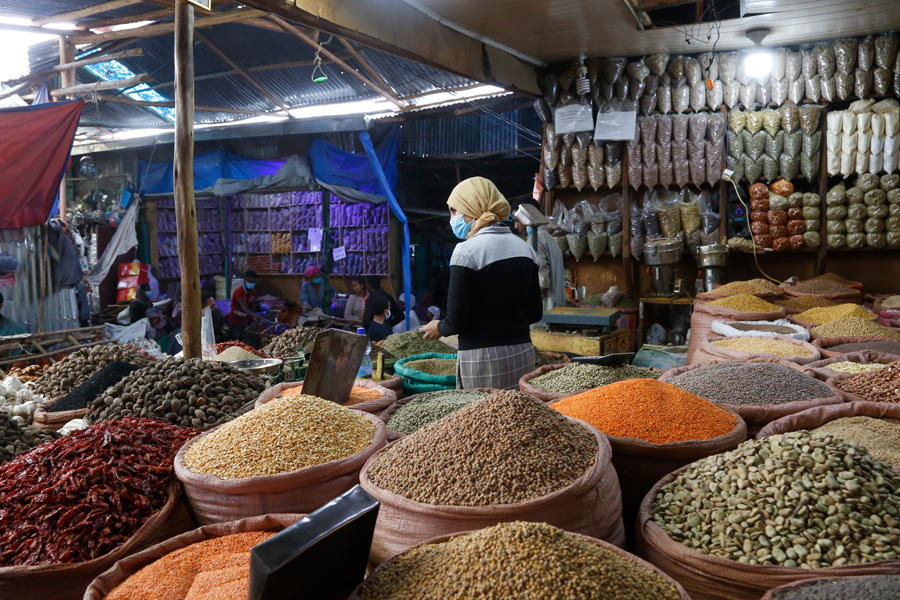
Agenda | Sep 08,2024
Lillian Kidane joined Dalberg in 2018 in Ethiopia with nearly 20 years of experience in global development. Her diverse expertise spans public health systems, climate and trade policies, and digital transformation across Africa and the Caribbean, working with organizations across the social sector spectrum – governments, corporations, private foundations, multilaterals, and NGOs.
Lillian is an entrepreneur at heart, bringing to her work her own experiences with introducing successful local enterprises, including an Africa-wide E-commerce platform, a leather-based fashion brand, and a payment gateway platform – all aimed at increasing inter- and intra-Africa trade and job creation. Her passion is to help individuals and communities reach their full potential through educational opportunities and dignified work. Lillian began her professional career as a Peace Corps volunteer in Morocco, providing health training and clinical services to women and children in a small town where she discovered her passion for vocational teaching. She also sits on a number of boards globally and locally, including the Labor Mobility Partnerships, a nonprofit field-builder developing scalable solutions for workers to access quality jobs across borders.
Lillian completed her post-graduate studies in international healthcare management at Yale University’s School of Medicine (USA), holds a master’s in public health in Health Economics and Informatics from Johns Hopkins School of Public Health (USA), and has an undergraduate degree from the University of Notre Dame (USA). Lillian is of Eritrean descent and lives in Addis Ababa, Ethiopia, with her husband and two sons.
I would trace my passion for public health and well-being to a lineage deeply rooted in healthcare. I can track back to 8 generations of physicians, midwives, and traditional birth attendants. Growing up, I recall my mother's vivid stories of my grandmother Negisti Edward, a midwife who with a touch of her finger on a laboring mother's womb, could determine the health of both mother and the unborn baby. This was at a time when Ethiopia’s infant mortality rate was 199 per 1000 live births. The lesson I took away was that my grandmother had a superpower, and I was allowed to grow up believing I too had superpowers that I would be expected to use in support of improving lives and livelihoods.
As an adult, I've witnessed the incredible potential of this continent firsthand. I have been lucky enough to spend nearly two decades engaging in topics that impact the lives of populations such as public health, climate, trade, and digital transformation and in doing so, I have developed relationships with inspiring changemakers across the continent. And in doing so, I found my purpose and joy.
So, when I first encountered Dalberg, I was attracted to its strong “say: do” ratio. What I mean is the variance between what I could observe against what Dalberg claimed to be with its unique approach to consulting, which goes beyond traditional consulting. Dalberg struck me as a platform that harnessed state-of-the-art innovation in analytical processes, data management, and qualitative research, when addressing critical impact-related inquiries, deeply appealed to me because I was not seeing other firms dedicate these tools to solving social challenges in this way. Moreover, Dalberg’s DNA involves becoming an integral part of the communities we serve, fostering collaboration, and prioritizing transformative systemic change over profit, which resonated with me.
Dalberg works to build a more inclusive and sustainable world where all people, everywhere, can reach their fullest potential. We partner with and serve communities, governments, and companies providing an innovative mix of services – advisory, investment, research, analytics, media, and design – to create impact at scale. Our businesses provide high-level strategic, policy and investment advice to the leadership of key institutions, corporations, and governments, working collaboratively to address pressing global problems and generate positive social impact.
Our mission is to empower the drivers of change by providing them with strategic thought partnership, with technical and implementation support.
As the new Regional Director for Africa, I’m excited to build upon Dalberg’s strong legacy in the region. We have a history of deep engagement in Africa — we are not consultants who fly in and out and make recommendations that someone else carries out. Instead, we aim to be embedded in and originate from the communities we serve. Our Partners in the region balance this by collaborating with our 30+ Partners outside of the region as we continue to build a human-centric, international firm.
This enables us to provide a holistic approach by pulling in innovators all across the brand’s capabilities, whether in design, implementation, primary research, big data management or media.
I am eager to deepen our collaborations, evolve our approach, and empower changemakers, community organizers, government officials, and civil servants to scale their impact. By fostering an environment where entrepreneurship and innovative thinking thrive, and by keeping that Dalberg orientation of crafting people-centric solutions, I know we can deepen and support the incredible opportunities Africa holds as a continent on the cusp of change.
Our goal is to empower the people of Africa to not only survive but for communities to thrive. We are part of that journey the continent is taking to shift the focus from immediate and urgent challenges to drive towards more systemic and transformative outcomes.
At times that means being willing to step into uncomfortable spaces. Our vision is clear: If we are effective in our role, it should have a clear endpoint, an exit. We measure our success by our ability to transition out of roles when the time is right and be part of the shift from incremental to transformative change. We understand that the requirements around solving substantial problems today won’t be the same as two years from now and so we have to be constantly willing to evolve to meet the needs of our context.
Looking ahead, we will leverage our impact legacy within the continent and evolve our approach. Today, Africa has more energy, resources, and leadership than ever before. As Regional Director, I want to deepen our engagement, continue to evolve our approach, and be thought partners in a way that supports community organizers, organizational leaders, government officials, and civil servants to deepen and scale their impact.
The continent is not just a canvas for change, but a vibrant and diverse landscape of opportunity and progress when it comes to health, gender, food systems, and jobs, technology, education, and sustainable development. We have been working together with truly inspiring clients, partners and communities who are committed to addressing some of the most pressing needs of today with the perseverance to commit to the longer-term growth of the continent.
For instance, in Africa, only 20% of the population has received full doses of Covid-19 vaccines, compared to the global average of over 60%. The Vaccination Action Network (VAN) is a locally led, peer-to-peer learning initiative designed to improve health systems across sub-Saharan Africa while scaling demand for Covid-19 vaccines. This project was a collaboration between The Rockefeller Foundation, Amref Health Africa, Sabin Vaccine Institute, and Dalberg, and supports decision makers in Kenya, Malawi, Tanzania, Uganda, Zambia, and Zimbabwe to identify Covid-19 vaccine demand challenges and co-create action projects that address them.
Another valuable initiative is with CGAP and Digicap who are working with us on empowering smallholder farmers to use finance and access instruments and tools. What’s inspiring is how this initiative has now opened the door for collaborators who can extend their strategic reach to create more value to people and the planet – clean cooking stoves, voluntary carbon credit systems, digital credits for partners – they want to go the whole distance to transform lives.
Scaling innovations in public education can be challenging but Hempel Foundation’s groundbreaking Elimu-Soko program has simplified it. The program has proved successful at unlocking public financing for private-sector innovations in Africa's education sector. The pilot in Rwanda yielded remarkable results, improving foundational learning outcomes for over 18,000 students – and this program has scaled to Zanzibar.
The stakes have always felt high in Africa, but our continent’s resources, leadership, and skills have never been higher. Africa faces multifaceted sustainability challenges today. We must ready ourselves to welcome 760 million urban dwellers by 2030 so that they can both survive and thrive. That means addressing climate change, health security, job creation, access to affordable financing, to begin with, for both existing and new residents of the continent.
Fortunately, the harmonization of accelerators, regional networks, and product development partnerships is reshaping the narrative of African healthcare. By accelerating innovation, fostering timely collaborations, and addressing specific challenges, these initiatives are ushering in a promising era for healthcare across the continent.
As an Eritrean American, I am interested in more deeply exploring human conflict and supporting humanitarian efforts across Africa. I am hoping to engage with reputable partners like the Red Cross and UNICEF to learn from their substantive experience. My family often jokes that ‘trauma runs in our blood’ to justify my tendency to confront difficult situations head-on. I am most interested in leveraging Dalberg-wide resources to help bring innovative ideas and support to changemakers on the frontline of such challenges.
Technology and innovation are no doubt catalysts for social impact, due to the reach that such tools allow your message and services to reach in a short time. People-centric approaches to problem-solving coupled with technology enable us to tackle complex challenges, enhance access to information and services, and bridge digital divides bringing new solutions to age-old problems.
However, it's crucial to acknowledge that the participation in technology remains uneven, perpetuating biases and inequalities, at times spreading misinformation, and making the adoption gap between the Global North and Africa more problematic. To bridge this gap and ensure equitable adoption, there is a need to prioritize accessibility, affordability, and digital literacy as a foundation to the introduction of technology-based tools and services.
It is incredibly heartening to see Ethiopia taking an ambitious step in developing a state-of-the-art AI research and development Center by 2030. We want to see the gap in both the adoption of AI and the benefits AI can bring in areas like increasing GDP and improving the quality of lives. We can hope that the learnings from Ethiopia’s AI institute will in the near future help move other African nations in that direction. Our report ‘Advancing the Future of Work in Africa through Digital Transformation: The Role of Systems Orchestrators,” illustrates that with stable and empowered systems orchestrators – individuals or entities responsible for coordinating and managing digital transformation efforts – African countries can accelerate their progress in adopting digital technologies, ultimately achieving rapid socioeconomic development.
We've also learned valuable lessons from our work globally emphasizing the importance of responsible technology deployment. Exploring the depths of AI and related fields like open-source potential can catapult low-and-middle income countries towards growth while addressing deficits that hinder progress towards the Sustainable Development Goals (SDGs).
Dalberg collaborates extensively with stakeholders, fostering partnerships to address social impact challenges. We engage with governments, NGOs, and the private sector to co-create solutions, mobilize resources, and drive systemic change. It’s hard to think of a project that doesn’t include some level of collaboration across sectors!
Most relevant in Ethiopia has been our role in supporting 3 major policy pieces over the past 4 years. In 2020 we supported the Ministry of Innovation and Technology to develop the National Digital Ethiopia 2025 strategy. In 2021, we supported the Ministry of Industry in their efforts to revise the Industrial Policy and Sectoral Priorities. More recently, we supported the Ministry of Trade to develop the National Export Strategy last year. Across all of our government engagements in Ethiopia, Dalberg provides a technical leadership role under the ownership and direction of Ministerial leaders. Beyond Ethiopia, we have done and continue to do similar work with government leaders across 48 countries in Africa to-date with similar value.
With private sector and NGOs, our role focuses on empowering their leadership to continue to be recognized changemakers in their field(s) of activity by providing them with strategic thought partnership, technical support, and practical solutions.
Across the Africa region, my colleagues are working on how solar irrigation can provide sustainable livelihoods with CLASP. We actively partner with government bodies, training institutions, the private sector, and development partners towards the goal of fostering sustainable careers for youth employment and boosting Kenya’s much-needed Solar irrigation prospects. A Dalberg team has supported the Kenya Ministry of Energy, the Global Energy Alliance for People and Planet, with contributions from a dedicated Taskforce and in-country and global subject experts to achieve the Kenyan Government’s commitment to bringing its residents 100% clean energy by 2040.
Part of me still thinks of myself as a young professional. I think that is because this is such a dynamic and evolving field that it requires continuous learning and adaptation. So, I would emphasize that you never want to be stuck to an ideology of ‘expertise.’ You will develop pattern recognition with time and will be a seasoned professional, but you never want to stop bringing curiosity to your work, re-examining what you think you know to be true, and engaging with diverse perspectives in healthy conflict of ideas.
Second, I would say the only way to serve impact through consulting is to embrace a human-centric approach. Recognize that real impact begins with understanding the people and communities you aim to serve and always start by asking them what success means to them as your north star. When you embrace local contexts, you take on the responsibility of bringing the voice of people with lived experience to decision makers, so you can bring a human-centric approach to systems change. So, prioritize empathy and humility in your work and in your collaborations. Cultivate that same empathy for yourself and your partners if you can and be kind all the way along your growth journey.
Finally, collaboration is at the heart of sustainable impact. Forge partnerships, work with local communities, build ideological bridges and be open to learning from those you aim to empower as well as from those you serve whether governments, NGO, Philanthropies, or even the private sector.
As the new Regional Director for Africa, I’m excited to build upon Dalberg’s strong legacy in the region. We have a rich history of deep engagement in Africa, spanning nearly two decades, and the DNA of our approach is distinct — we are not consultants who fly in and out and make recommendations that someone else carries out. Instead, we aim to be embedded in and originate from the communities we serve. Our mission is to empower the drivers of change by providing them with strategic thought partnership, with technical and implementation support. Our approach in Africa has always been to pull in a range of services, whether in data analysis, design thinking, research tools, systems or implementation solutions, or even mobilize communities through communications to ensure our clients’ strategic interests are met.
At times that means being willing to step into uncomfortable spaces. Our vision is clear: If we are effective in our role, it should have a clear endpoint, an exit. We measure our success by our ability to transition out of roles when the time is right and be part of the shift from incremental to transformative change. We understand that the requirements around solving substantial problems today won’t be the same as two years from now and so we have to be constantly willing to evolve to meet the needs of our context.
Looking ahead, we will leverage our legacy and evolve our approach. Today, Africa has more energy, resources, and leadership than ever before. Personally, I want to deepen our engagement, continue to evolve our approach, and be thought partners in a way that supports community organizers, organizational leaders, government officials, and civil servants to deepen and scale their impact.
PUBLISHED ON
Oct 24,2023 [ VOL
24 , NO
1226]

Agenda | Sep 08,2024

Editorial | Jun 21,2025
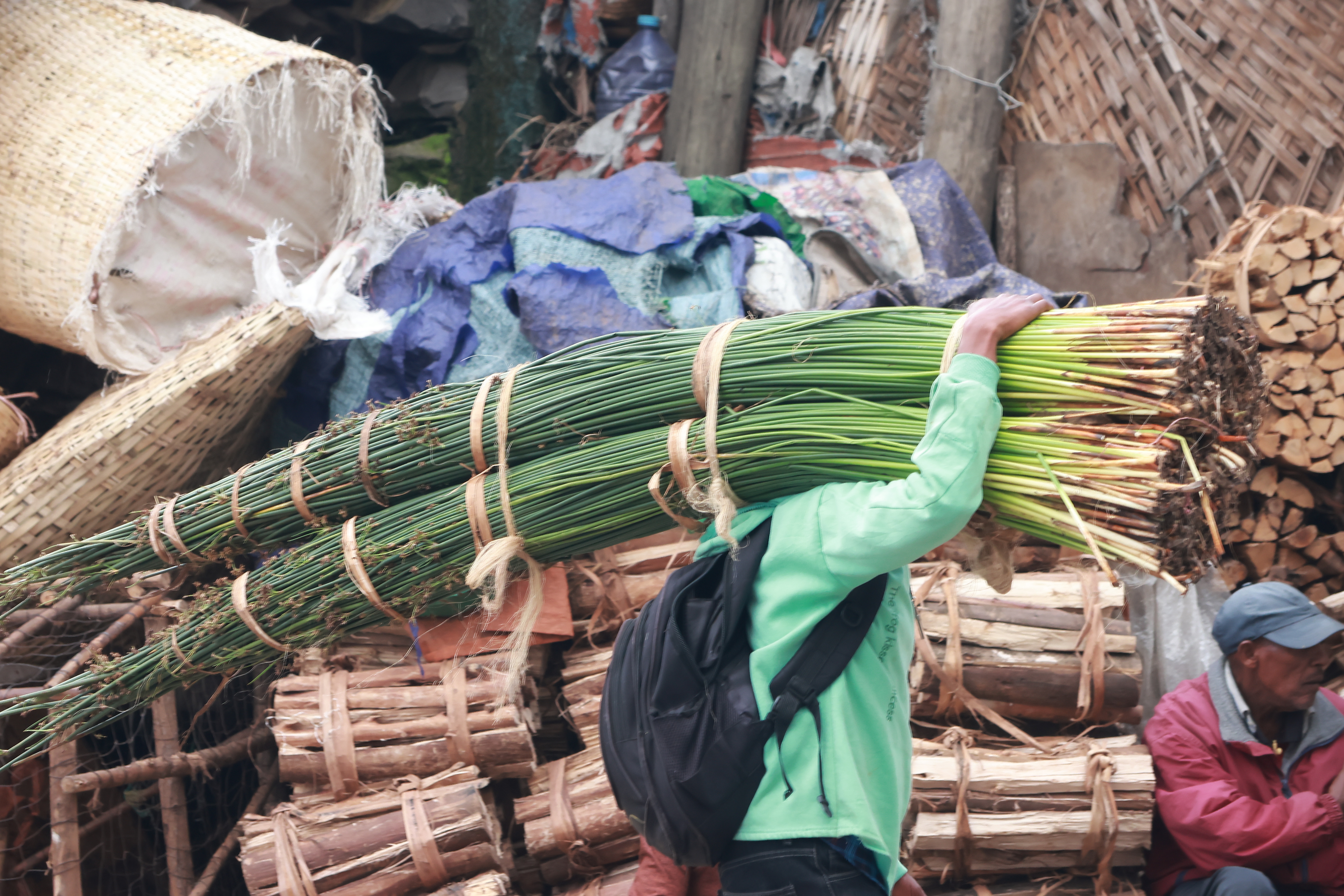
Addis Fortune | May 04,2024

Radar | Dec 01,2024

Advertorials | Apr 08,2024
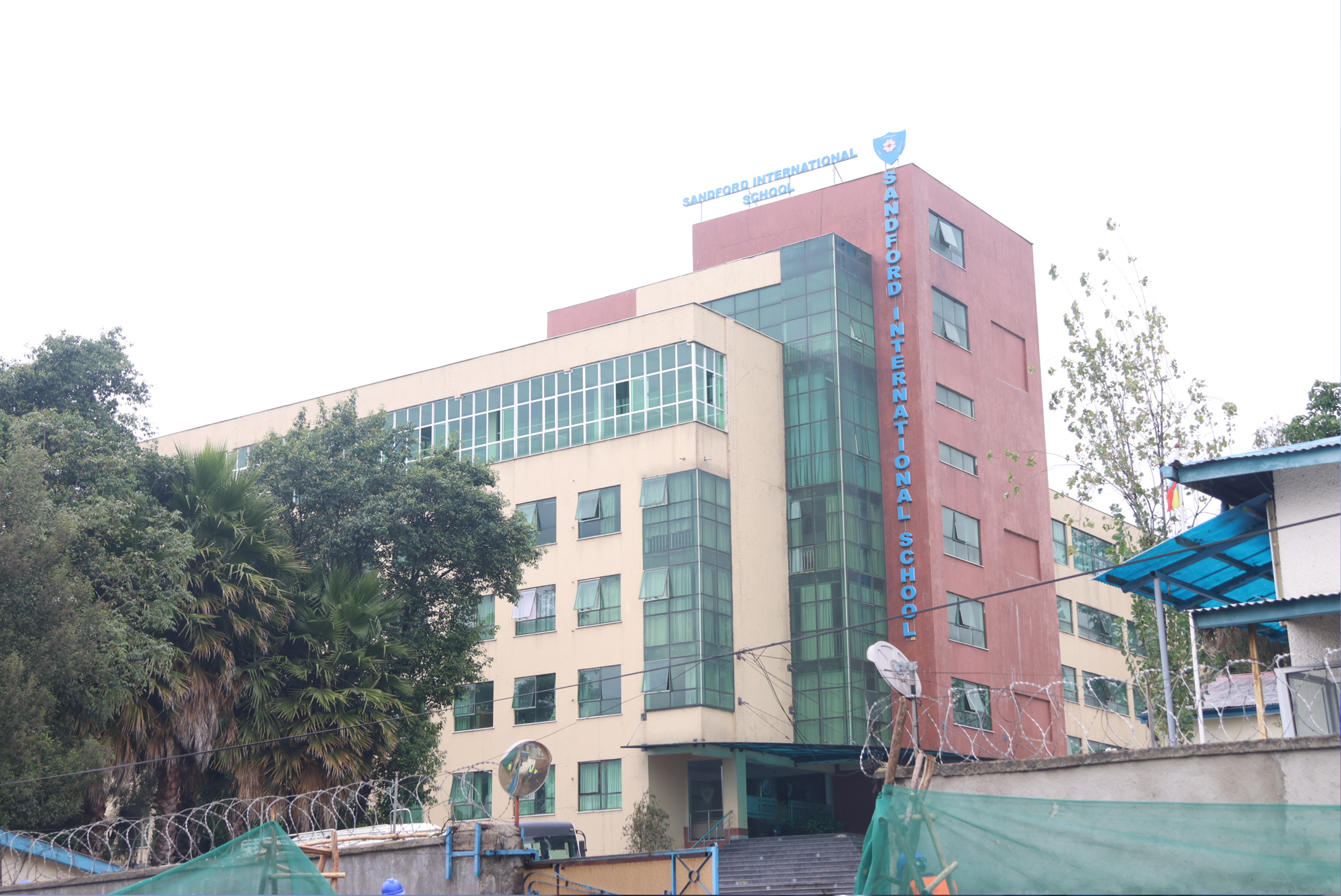
Fortune News | Jul 26,2025
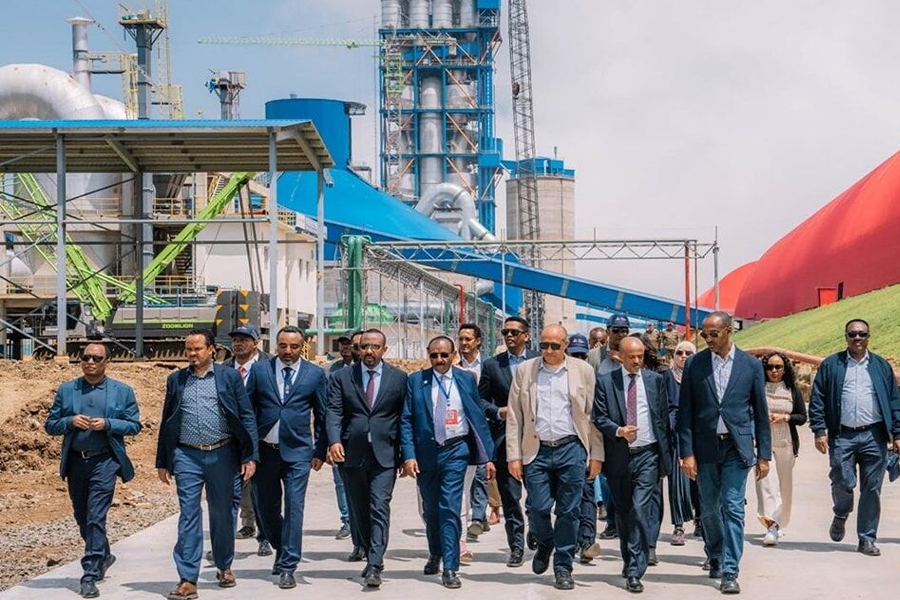
Radar | Sep 29,2024
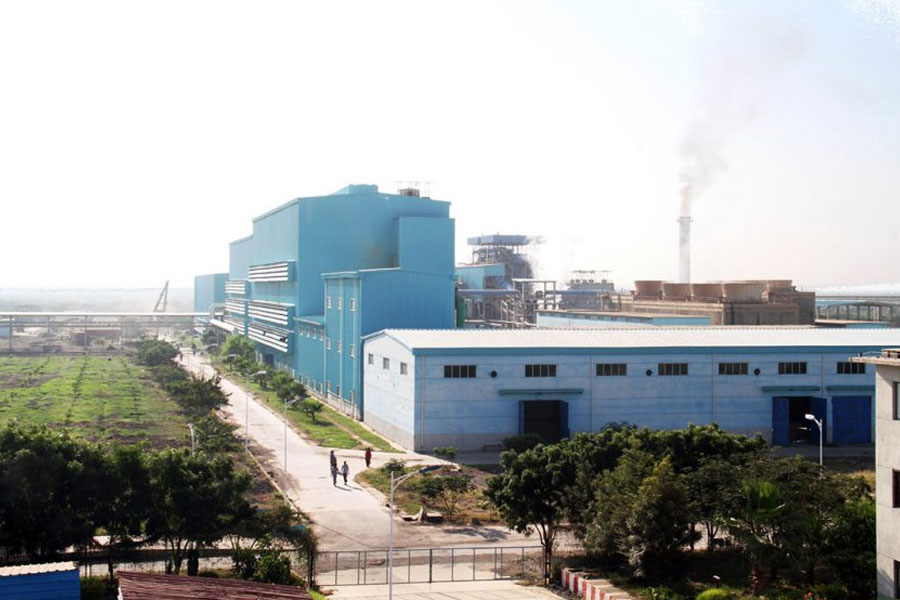
Fortune News | May 14,2022

Fortune News | Jun 01,2019
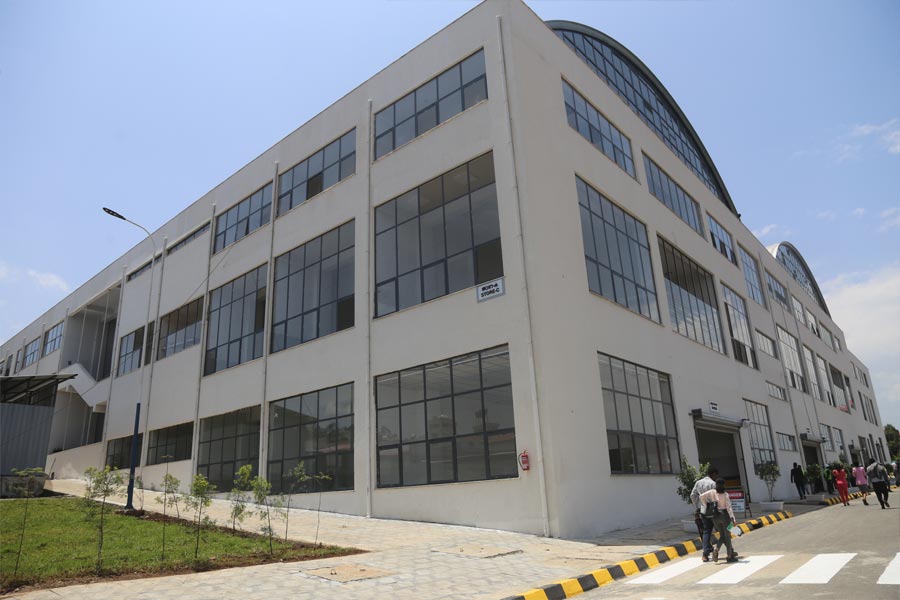
Fortune News | Feb 24,2024

Dec 22 , 2024 . By TIZITA SHEWAFERAW
Charged with transforming colossal state-owned enterprises into modern and competitiv...

Aug 18 , 2024 . By AKSAH ITALO
Although predictable Yonas Zerihun's job in the ride-hailing service is not immune to...

Jul 28 , 2024 . By TIZITA SHEWAFERAW
Unhabitual, perhaps too many, Samuel Gebreyohannes, 38, used to occasionally enjoy a couple of beers at breakfast. However, he recently swit...

Jul 13 , 2024 . By AKSAH ITALO
Investors who rely on tractors, trucks, and field vehicles for commuting, transporting commodities, and f...

Oct 18 , 2025
The political establishment, notably the ruling party and its top brass, has become p...

Oct 11 , 2025
Ladislas Farago, a roving Associated Press (AP) correspondent, arrived in Ethiopia in...

Oct 4 , 2025
Eyob Tekalegn (PhD) had been in the Governor's chair for only weeks when, on Septembe...

Sep 27 , 2025
Four years into an experiment with “shock therapy” in education, the national moo...